Before you can effectively conduct a digital audit, there are three things you need to determine: what it is, why you need one, and who is responsible for conducting it. Once you’ve determined the answers to those questions, you can move into the next phase of performing an audit.
We will walk you through the questions and tools to use to conduct a digital audit. It’s unnecessary to be a technical whiz to conduct a digital audit, but it helps if you have a little expertise.
Conducting a digital audit can be a daunting task. With so many possible methods, it’s important to start with a clear investigation plan and ask the right questions throughout. Before you begin a digital audit, it’s best to determine whether the audit is needed at all.
What is a Digital Audit?
A digital audit is a process of inspecting, examining, and analyzing your digital assets. A digital audit is a catch-all term that includes different types of audits under it. It can also mean other things under different contexts. In this post, we look at digital audits from the perspective of brand and marketing and optimizing a business’s digital assets for better ROI.
Why should you do a digital audit? And four reasons why you should not.
A digital audit can help you understand the current state of your digital assets and what role they’re playing in the growth of your business. If you’re about to undertake a digital audit, some telltale signs point to the need for one. Here are a few reasons why the digital audit is necessary:
- Identify and examine all of your digital assets so that you can apply the 80/20 rule later
- Understand how your business and brand is presented to the world digitally and how it’s perceived
- Identify problem areas and growth opportunities
- Gather vital information for your future digital marketing plans
And here are four reasons why you should not do a digital audit:
- You don’t see digital growth as necessary or relevant for your business.
- If you don’t plan to act on the result and recommendations from a digital audit
- You don’t have any digital presence.
- The business has pivoted or rebranded to an entirely new industry, and the current digital assets are not relevant anymore.
Components of a Digital Audit
Make a list of all the digital assets your business has. You can ignore those that are not active or relevant to your business anymore. Your digital assets will now need to be audited, and they could fall under the following categories of digital audits:
- Digital Strategy audit – This is the most high-level audit of your digital assets. You would ideally do this in the end once you’ve gathered all of the data points and assets from the audits mentioned below.
- Digital Brand audit – A digital brand audit seeks to understand how the brand is represented visually and its message communicated. The brand audit must also review how the brand is perceived, which is a critical aspect of brand positioning.
- Design audit – The design audit looks at the user interface and user experience of your digital assets. As part of the brand audit, you might also review the brand identity for consistency or relevancy when there is a need. Or both.
- Communications audit – A brand’s communication is critical to get the right message across with clarity and consistency. Most people will read or hear your brand on the web through one of your digital assets before they see it.
- Digital Marketing audit
- Website audit – Website is a core pillar of your inbound marketing strategy. Even if you rely on other marketing methods, a good website is necessary. Website audits show you design, performance, and technical issues hindering your website from doing its job.
- SEO audit – An SEO audit can be a part of your website audit or done separately. It looks specifically at search engine optimization guidelines and audits your website and other digital properties for problems and optimization opportunities.
- Social media audit – The social media audit could be a part of the communications audit or done independently. You will look at how your audience engages with your content on different social media platforms and not just go by the likes and follower counts.
- Digital advertising audit – If paid marketing is a key component of your digital marketing strategy, a regular audit of your digital advertising campaigns and tactics is necessary. The messaging, creatives, ad optimization, budgets, and other aspects are usually looked at.
- Digital Analytics audit – Your digital properties generate a ton of data. Everything from a click to a form submission is tracked. The data can be overwhelming, but an analytics audit can be a powerful tool to identify hidden problems and opportunities to further optimize your assets. The manual crunching of data on excel and automated report generation tools can both be useful depending on your needs.
You can assess every digital marketing asset from 3 perspectives:
- Technical audit – is the asset fully optimized or is there room for improvement?
- Design audit – qualitative assessment of the digital asset to identify how it can be presented better
- Communication audit – is the digital asset serving the purpose of communicating the right message to the right audience?
How to do a Digital Audit?
Here’s a digital audit checklist for a DIY digital audit:
- Prep for the digital audit – bandwidth, resource, and budget allocation
- Identify all the digital assets and list them down.
- Articulate your business objectives from this exercise
- Plan in advance how the audit recommendations will be implemented and by whom. Also, how the digital audit fits into your larger strategy.
For each digital asset listed in step #2 above:
- Get a qualified person to do a qualitative analysis
- Use free and premium tools to run tests and extract quantitative data
- Add quantitative and qualitative data to an excel sheet
- Assess the data and insights to create action items and recommendations
- Based on the severity and effort involved, prioritize the action items
Repeat this process for all of your important digital assets. And then finally, collate all of this information into a presentation to share with the other stakeholders in the company. Here are a few things to keep in mind while creating the digital audit presentation:
- Leave out the tech jargon and present the problem and recommendations in simple terms.
- Highlight the impact of fixing the problem. Paint a picture of the potential upside if you acted on all the recommendations in the digital audit
- Contextualize the issues and impact based on the stakeholders so that they can relate to it
- Compare and benchmark the state of your digital assets with that of your competitors.
- Present the priority X effort matrix of action items and the required resource/budget
How to choose the right digital audit agency?
The right digital audit agency will bring the following to the table:
- A strong technical, business, and marketing team
- Years of professional experience working with a wide range of customers
- Domain and relevant industry experience
- It doesn’t rely only on automated tools to run the digital audit. Instead, a digital audit company uses a process-driven approach and systematic analysis of digital assets by professionals.
- Digital agencies with audit experience will focus on prioritization and impact. Others generate a lengthy and wordy audit report which gathers dust and doesn’t result in implementation.
Is a free digital audit worth it?
The promise of free audit tools and instant report generation can be tempting. Most digital audit agencies also make use of the premium version of these tools. But the difference is that a qualified digital marketing expert can decipher the data, put it in the right context, and then make practical recommendations. None of this is possible with these automated tools, even if they claim to use AI. This is one primary reason for launching our website audit service that offers a video report of your website analysis.
Types of Digital Audit Tools
- Google Tools – Google Analytics and Google Search Console should be your first option. They are free to use and simple enough to set up and give you great insights into how your digital properties perform.
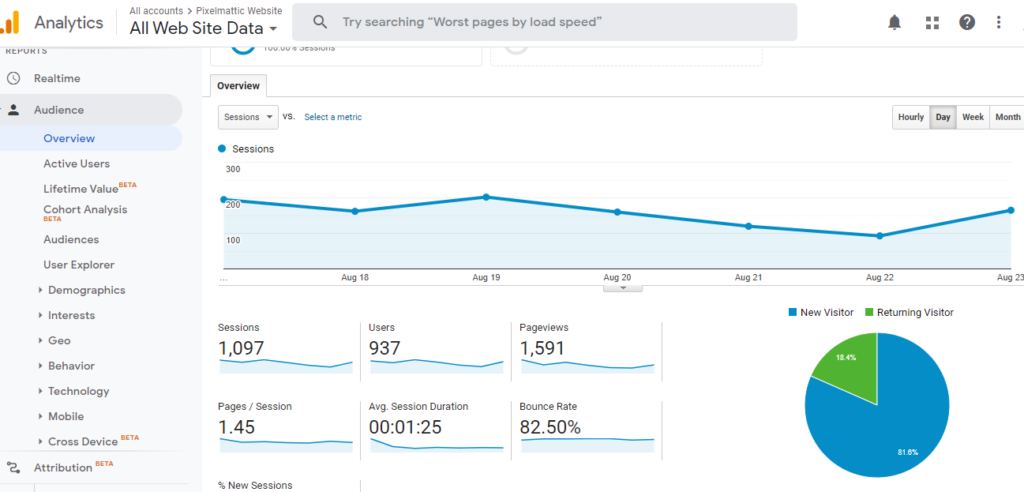
2. SEO audit tools – Ahrefs, SEMRush, and Screaming Frog-are the most popular SEO tools professionals use. The free versions are limited and offer you a glimpse of what they can do. Plenty of free tools available as well, but best to consult a website and SEO professional.
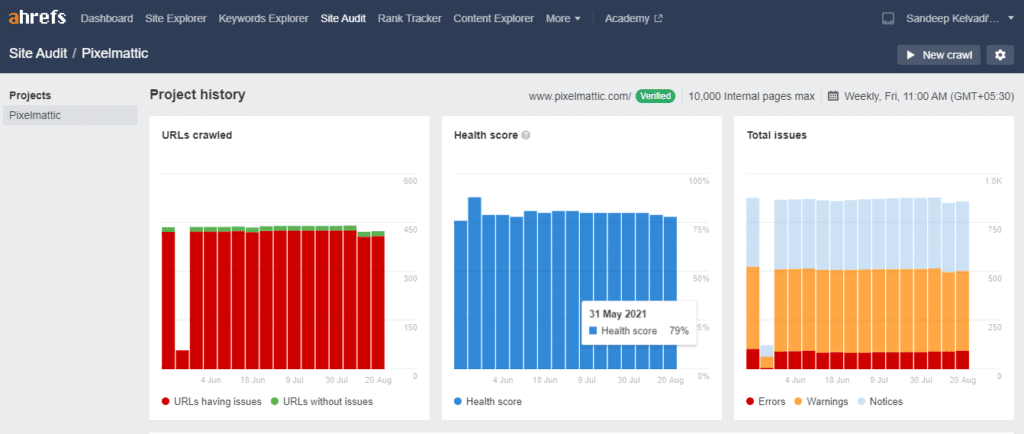
3. Website performance tools – GTMetrix is our preferred tool. Google PageSpeed or Google Lighthouse (which is built into Google Chrome) offers great insights into your website’s performance. (Here’s everything you need to know about optimizing your WordPress website for speed)
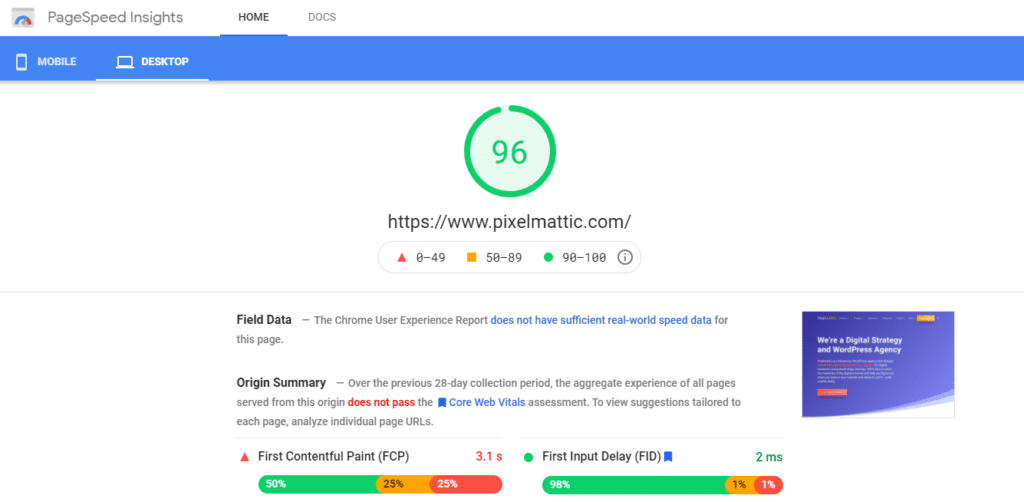
4. Social media audit tools – Hootsuite and Buffer are two popular social media management tools, but they also offer analytics dashboards. (Here are 8 social media tools you can try for your social media audit)
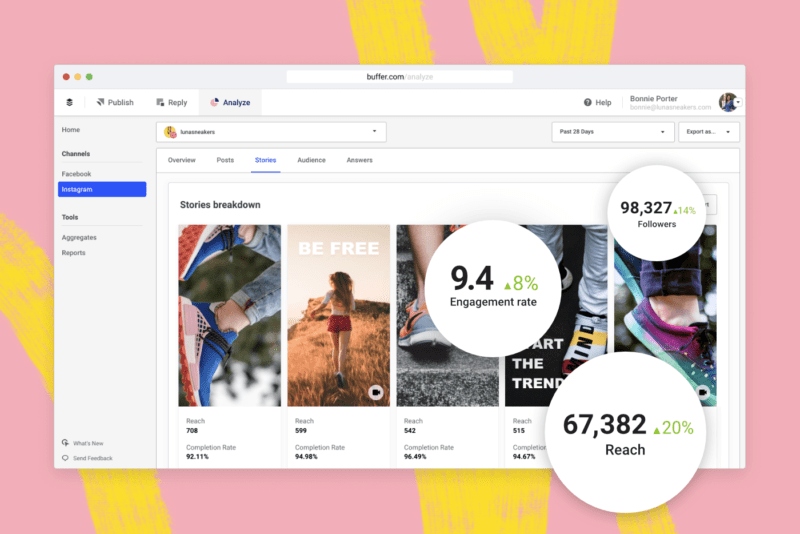
5. Brand audit tools – Competitor analysis tools, audience research, and customer survey tools can be used as part of your brand audit.
6. WordPress security audit tools – Blogvault and Sucuri are two of the most popular WordPress audit tools. Website backups, malware scanning, and firewall is also part of the what these tools offer.
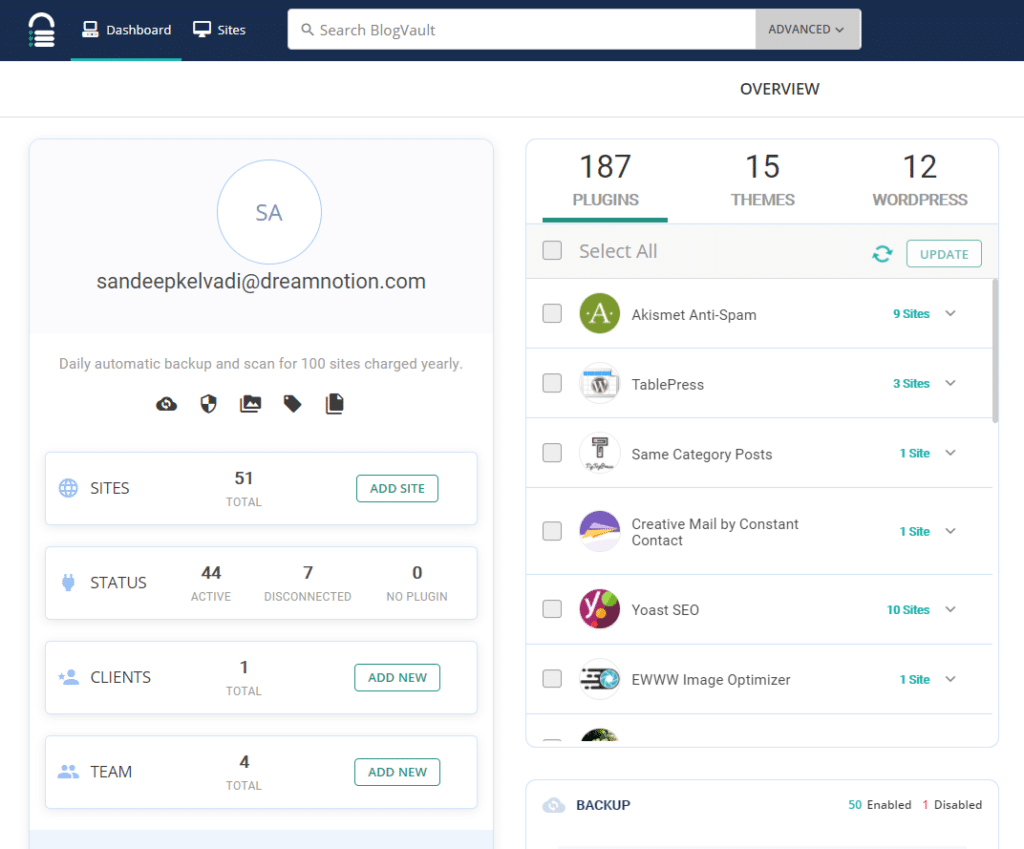
7. Content audit tools – SEO audit tools and social media tools can give you quantitative data on your content. But this audit also requires qualitative analysis of the content to determine relevancy and freshness of content.
How much does a digital audit cost?
The cost of doing a digital audit is dependent on the number of digital assets being audited, the size and complexity of these assets, the effort and resources involved, and the experience level of the digital audit agency.
Our quick website audit, which includes design, SEO, and performance assessment, costs Rs. 9500. On the other hand, we do a 2-week marketing audit that dives into competitor analysis and brand audit, which costs upwards of Rs. 50,000.
A digital audit that includes website audit, SEO audit, content audit, performance audit, security audit, social media audit, analytics audit, and more can run upwards of Rs. 2,00,000 and take a month or more to do.
It is therefore important to be clear about the scope of the digital audit. Writing down your business objectives and being clear about why you want to do the digital audit can help you find the right digital audit company and at the right cost.